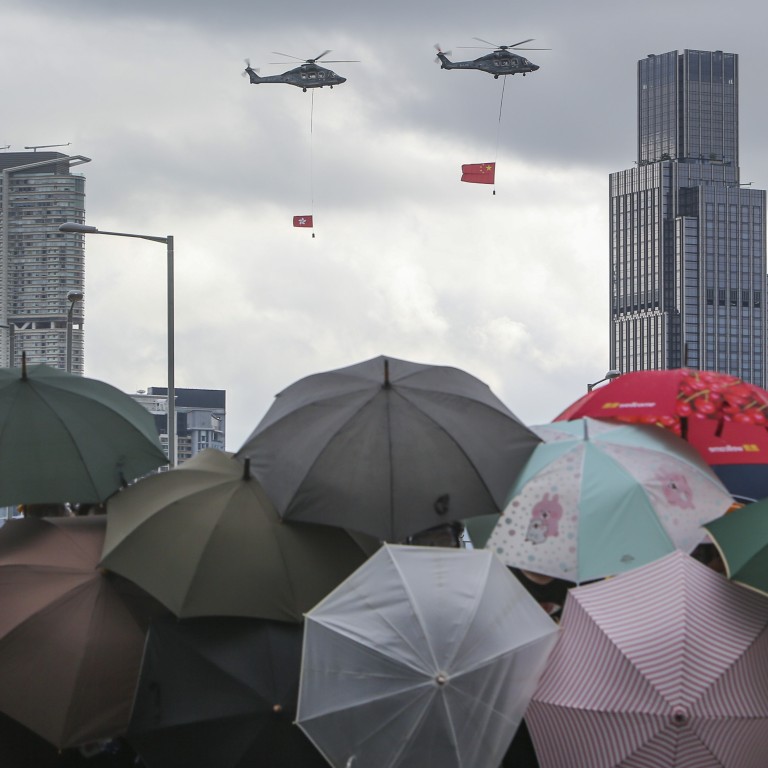
Patriotism can only be instilled in the young, not imposed
- With fewer Hong Kong people considering themselves Chinese and Beijing issuing patriotic guidelines, the right approach must be taken in a city gripped by social unrest
According to a regular survey this summer, the percentage of people identifying themselves as Hongkongers or Hongkongers in China hit a record 76 per cent. Those who called themselves Chinese or Chinese in Hong Kong fell to 23 per cent. Given China resumed sovereignty of the city more than two decades ago, this trend has inevitably raised concerns.
That does not mean Hongkongers do not love the country, though. Even before the founding of the People’s Republic, the city had been a firm force of support for the nation. For generations, its people have contributed to China’s modernisation and economic development in various forms. Whenever there were natural disasters on the mainland, relief and donations flooded in from across the border. And when Chinese athletes and scientists excelled on the world stage, the cheers and applause here were just as fervent. Even though local people do not readily embrace the Communist Party as much as their mainland counterparts, they share the pain of the nation and rejoice in its success. They love the country and are proud of Chinese culture and heritage.
‘More than 40 per cent of Hongkongers have low sense of belonging to China’
The patriotism complex owes much to the long separation of the city from China and the high degree of autonomy granted by the state. If resistance to national identity is particularly high among youngsters, it probably stems from growing tensions arising from the implementation of “one country, two systems”. It is the clash of different political ideologies, perceived erosion of freedoms and identity, and lack of a sense of ownership in the city’s future that alienate the younger generation.
Whether this complex can be addressed by strengthening patriotic education in schools remains to be seen. But, if the strong opposition to government moves in 2012 to make national education mandatory in schools is any guide, a top-down approach does not seem to be the way forward. Even without the state’s guidelines, a lot needs to be done in the wake of the social unrest. How this will be followed up by the city government shall be closely watched. Experience shows that national identity and patriotism can only be instilled, not imposed.

